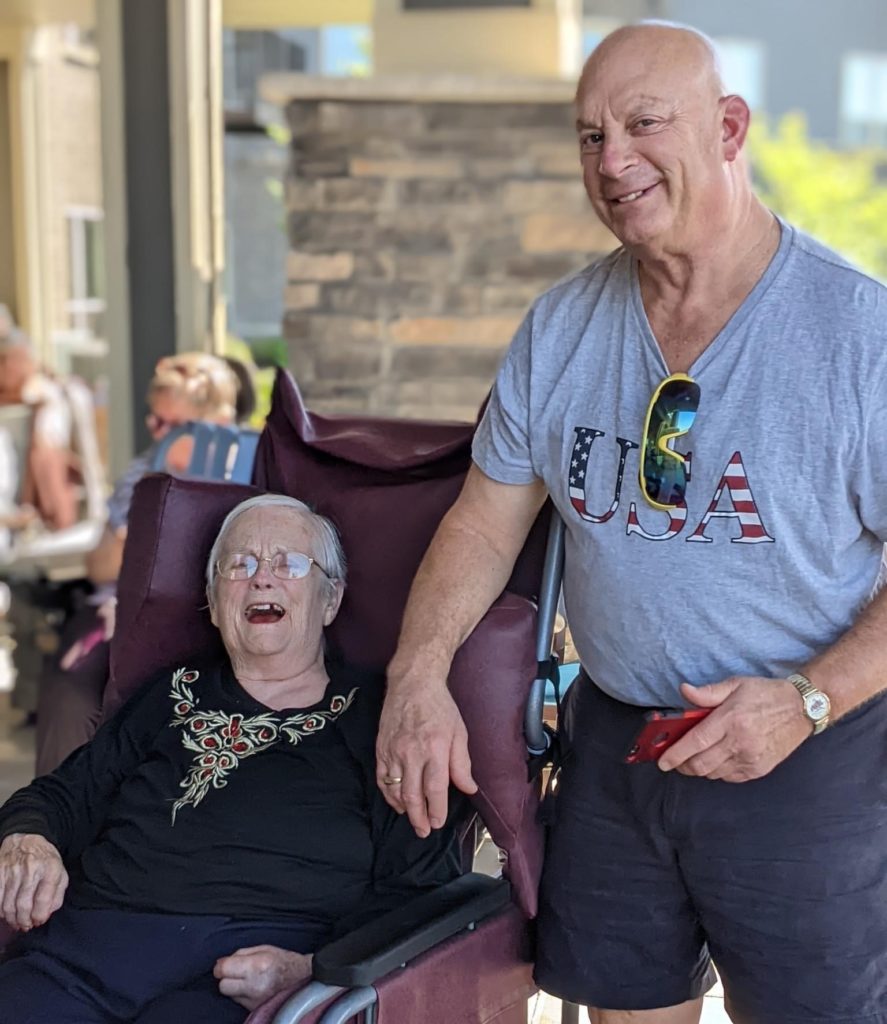Caring for aging parents can be stressful, especially when you include siblings in the mix—the people you’ve grown up with, played with, fought with, and reconciled with. It can be difficult to remember that you’re all adults now with your own thoughts and perspectives, and it often leads to tension. So what’s the best way to work together to care for your parents and avoid as much stress as you can?
Working with your siblings to take care of an aging parent is just that: working together. It’s important to be understanding and respectful of each other, to listen to what each person has to say and what they feel, and keep everyone up-to-date about changes in your parents’ lives. It can help to determine a primary caretaker to make important decisions.
If your parents are in assisted living or a similar community, it can be a good idea to schedule a group visit and spend quality family time together. By focusing on the good things and letting go of more stressful situations, you can make sure your parents have the best quality of life possible. Being surrounded by both you and a team of caring individuals, like those here at Urbana Place Senior Living, means you’re sure they’ll be getting the support they need for a comfortable and fulfilling life.
How to Determine a Primary Caretaker for an Aging Parent
A primary caretaker is best described as someone in charge of taking care of another person who has difficulty caring for themselves. This caretaker doesn’t have to be a professional of any sort—it’s usually a family member who can provide the care needed, and who is in the best situation to make decisions with their loved one’s best interests in mind.
However, determining who will be the primary caretaker can often be difficult. No matter who takes on the primary caregiver role, it should be a unanimous decision. And it needs to be a realistic one as well! A lot of time and effort goes into caring for an aging parent, and it’s important that whoever signs up to take on the task is capable of doing it.
Whoever agrees to be the primary caretaker should be able to answer the following questions:
- Do they understand what’s needed, what decisions they may have to make, and their responsibilities?
- Who will be helping with the finances, and how will they be distributed?
- What level of care is needed? Can your parents still cook and clean for themselves, or do they need round-the-clock care?
- Is your parents’ living situation suitable for the long term, or will they eventually need to move into a senior living community?
- In the case that your parents can no longer make decisions for themselves, will you be making them, or will it be a group decision?
- What does everyone expect of you in this position?
By answering questions like these, you can determine whether the person is the best primary caretaker. It’s also important to note that circumstances change often—people move, finances change, and life happens! Make sure that everyone involved is up-to-date with important events or changes in your and your parents’ lives.

Supporting Each Other
Being a primary caretaker is a lot of responsibility. Whether it’s you, your brother, or your sister, it helps to support each other however you can. Working together is the best way to make sure your parents get the best care possible, and that nobody feels like they’re doing it alone. Caregiver burnout is a real thing, after all!
Sometimes another person may need to step up, or more help may be needed. Be understanding of each other, and make sure you’re all respectful. By showing that you’re actively listening and respecting each other’s thoughts and opinions, you can create a supportive environment.
Be Understanding of Your Siblings
It sometimes can be difficult to remember that these people you’ve grown up with are adults just like you. You’ve all had different experiences and challenges that have made you into the people you are. At the end of the day, a little bit of respect goes a long way.
When you’re taking care of an aging parent, a lot of smaller things become less important. The fights you had when you were younger, the time your sister stole a hairbrush, that one time your brother broke your favorite toy—none of this is relevant anymore. What matters is your parents and their quality of life.
Maybe someone lives on the other side of the country and doesn’t get home too often. If this is the case, they may not have realized how serious the situation could be. If your parents were in perfect health when they were last home, and they’re suddenly facing difficulty moving around or other health issues, it’s jarring to see such a change, and it may take time to adjust.
Maybe one of your siblings lives near your parents and has been taking care of them in many ways, whether helping with bills or buying them groceries. Or maybe your parents live in an assisted living community and your sibling has been visiting often and helping with finances. They could be dealing with burnout and feeling like they’re doing all the work, and need to know they aren’t alone.
Try and have occasional meetings where you can talk openly with each other and share your thoughts. When you listen to what your siblings are saying and respect their point of view, you can begin to build a foundation where you can work together as a team and help your parents to the best of your abilities!
Consider Your Limits When Caring for an Aging Parent
Sometimes, no matter how much you think you can handle, you may realize you can’t do it all. And that’s completely okay.
This is when it may be time to consider the different options for senior living. Between assisted living, independent living, or even memory care communities, these options are excellent ways to lessen your struggles while supporting your parents’ needs and independence.
Assisted living communities specialize in making sure their residents retain as much independence as possible while still giving them access to the resources they need to be safe, comfortable, and happy. Memory care communities can help residents who struggle with memory-affecting conditions like dementia or Alzheimer’s.
Explore a Caring Community
If you and your siblings are curious about senior living communities or want to learn more information about the options available, contact us here at Urbana Place Senior Living! You can also schedule a tour to see for yourself if we’re the right fit for your parents. We’re here to do whatever we can to make sure your parent has the best quality of life possible.



